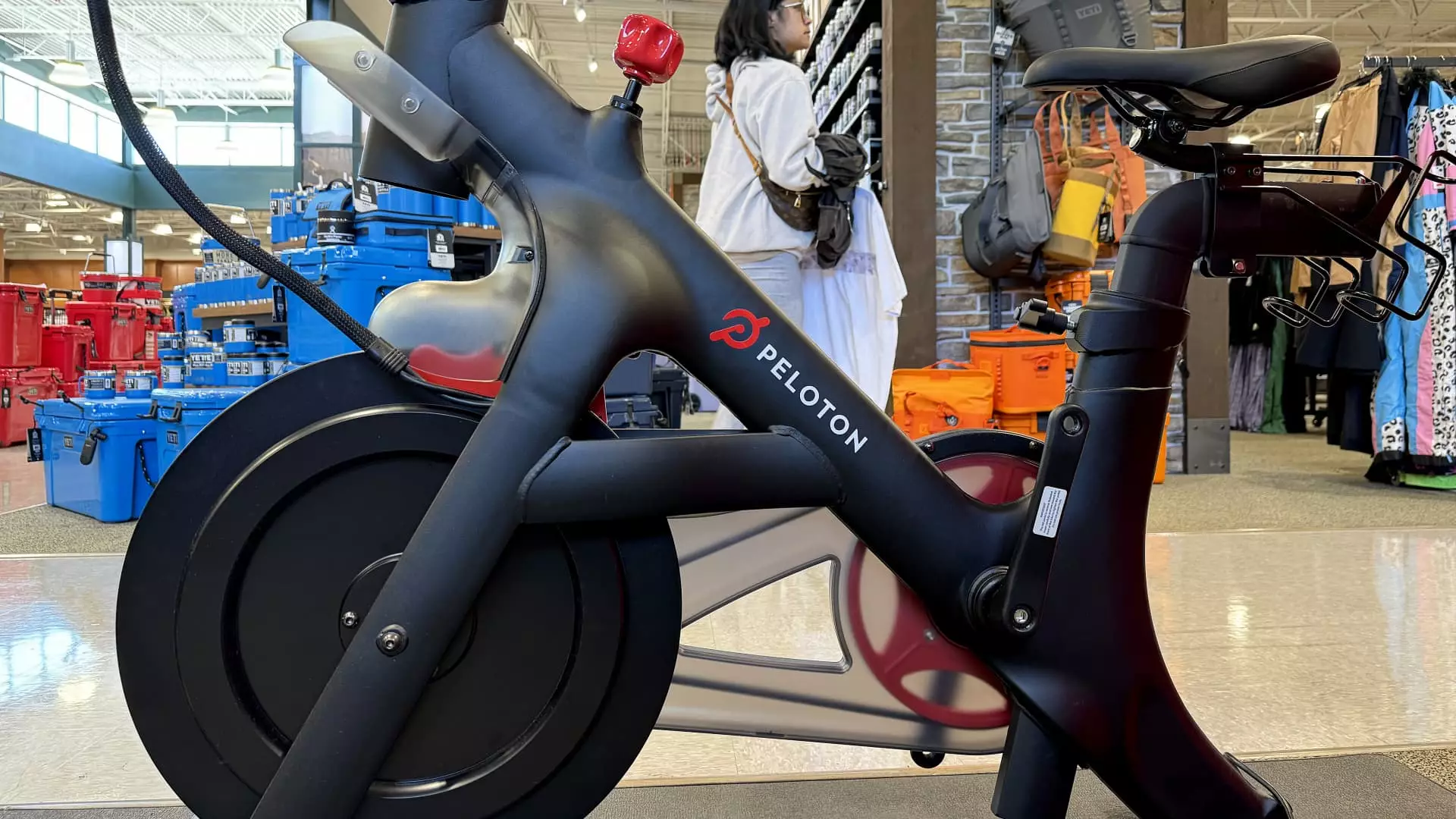Peloton’s recent announcement about its new resale platform, Repowered, is painted as a consumer-driven initiative. However, beneath the shiny veneer of a “marketplace” lies a more troubling narrative: a calculated move by Peloton to monetize its growing secondhand market. With the company previously encountering significant subscriber churn and declining sales, it seems their plan to introduce Repowered is not as altruistic as it claims. Instead, it smacks of desperation to squeeze every last dime out of their existing base while presenting the illusion of inclusivity to potential new customers. This may attract buyers, but it’s not the community-focused air that Peloton is trying to sell to the public.
A Wolf in Sheep’s Clothing: The Role of AI
The integration of an AI tool to help sellers price their used bikes and gear is being portrayed as a sophisticated touch. However, one must question the actual utility of this feature. Will an algorithm truly capture the emotional value or the specific circumstances that led someone to sell? Price suggestions may sound convenient, but they could just lead to unpredictable fluctuations that confuse buyers and sellers alike. Moreover, the AI’s influence further distances the human experience that used equipment sales typically involve. Is Peloton trying to make a genuine marketplace or curating an impersonal buying experience cloaked in technological wizardry?
A Disparity of Profits
Peloton’s revenue-sharing model, where sellers receive a mere 70% of sales while the remaining 30% is shared between Peloton and its platform provider, Archive, raises eyebrows. This model not only undervalues the effort and contribution of individual sellers but also showcases Peloton’s unrelenting desire to retain control over its brand, even as it capitulates to a growing demand for previously owned equipment. With such a small portion of the profit going into the seller’s pocket, one could argue that Peloton is more concerned with enriching itself rather than truly facilitating a fair exchange.
Discounts or Deceptive Marketing?
Peloton claims to provide discounts on new equipment for sellers, which appears appealing at first glance. However, this could very well be a mere marketing gimmick to rope in more users and generate new sales while masking the notorious economic inefficiencies that frequently plague secondhand markets. Potential buyers are also enticed with the prospect of lowered activation fees on used products. While this lowers the barrier to entry for some consumers, is it justifiable, given the larger economic implications? What sacrifices are being made to ensure this marketplace runs smoothly for Peloton’s bottom line?
Competition or Confusion? The Impact on Other Startups
Peloton’s entry into the resale space signals that they see the potential for profit, but it is crucial to reflect on the impact on smaller startups like Trade My Stuff, which has established a niche for Peloton enthusiasts longing for resale services. Peloton’s direct competition may not only muddle the waters for people looking to buy or sell but could also lead to increased fragmentation within the market. Consumers may soon find themselves overwhelmed by choices, wondering where they are likely to receive better service and prices. In painting Repowered as a community-centric solution, Peloton may inadvertently stifle the growth of honest alternatives that have been working diligently to build a fair resale ecosystem.
A Band-Aid on a Bigger Problem
Ultimately, Repowered seems more like a band-aid on a larger wound within Peloton’s business model. The company’s history of declining subscriber numbers and growing consumer dissatisfaction cannot be solved by merely facilitating the sale of used bikes and treadmills. Until Peloton innovates beyond its reliance on subscriptions and embraces a more diversified, consumer-friendly approach, its new platform may only serve as a temporary fix. Offering members a way to sell their unused gear doesn’t tackle the root causes of disinterest in the brand. Rather, it’s a stopgap measure to mask the realities of consumer behavior and satisfaction.
Final Thoughts: A Marketplace with Caveats
While Repowered offers intriguing possibilities, a critical look reveals inherent flaws and contradictions. Peloton’s focus on profit, the imposition of AI in what should be human transactions, and the troubling distribution of revenue suggest that this marketplace is more about maintaining control than genuinely serving its community. Without real change in how Peloton engages its user base, Repowered could become nothing more than another chapter in the company’s ongoing saga of market adaptation rather than a transformative tool for fostering community engagement.

